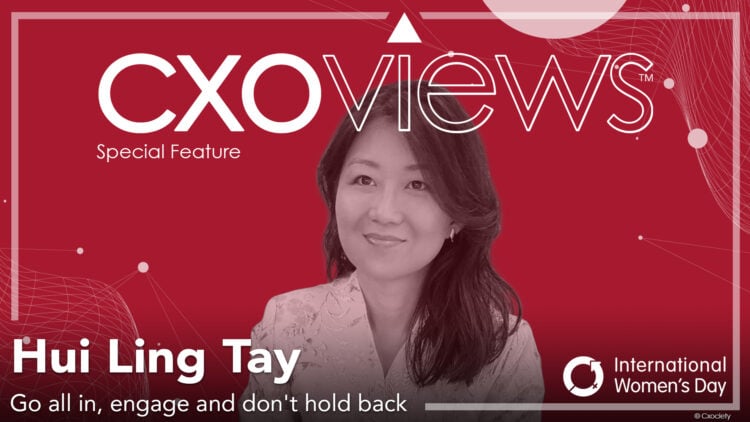A Forbes article suggests that 2024 will be tough for everyone. FutureCFO discourse with finance and business leaders echoes the same sentiment. But even as leaders brace for the possibility of harder times ahead, a more important issue is recognising the need of workers for a sense of belonging.
In recognition of the continuing importance of diversity and inclusion in the workplace, FutureCFO continues to reach out to women leaders on their experiences, strategies and learnings on their journey towards recognition and inclusion at the higher echelons of power in the organisation.
One such executive is Hui Ling Tay, FCA, former head of funds management for Singapore, Vietnam & Malaysia at LOGOS (ESR Group) and former head of finance for Singapore at Lendlease. Currently, she is an ICAEW Fellow
Asked to what extent this sense of belonging, relevance and empowerment exists in the organisation and industry she has previously been associated with, she replied: “The organisations I've worked for prioritise inclusion, empowering everyone to contribute their strengths, perspectives, and knowledge daily.”
She revealed that inclusion initiatives include the adoption of flexible and scaled workload schemes, together with health and wellbeing policies to support employees in balancing work and caregiving responsibilities.
She noted that for those with international postings, there is greater recognition of the importance of family. “Recognising the importance of supporting the family structure, organisations have supported the individuals in having their family join them on overseas postings,” she added.
She also cited initiatives like the ICAEW's Women in Leadership Programme, a six-month programme consisting of workshops, peer learning, personal assessments and mentoring, are very effective ways of supporting women leaders.
The most prevalent obstacle to inclusion
Tay identified unconscious bias as the most prevalent obstacle to inclusion. For her, this begins early, as seen in gendered expectations. For instance, boys are encouraged to be self-reliant, while girls are often helped more.
She cited the often-debated discussion of why there are fewer women at the top than men. “Research shows women face higher standards for competence and are judged harshly in male-dominated fields,” she started. “If a woman in a male-dominated environment makes a mistake, they are seen as less competent than a male counterpart making the same mistake.
Tay opined that as women advance, they navigate between being seen as competent and likeable, balancing between feminine and masculine traits. “High-status jobs are seen to require masculine qualities, whilst women are expected to be modest,” she added.
Learnings on achieving inclusion
According to Tay, a truly diverse and inclusive workplace draws on the different viewpoints of its workforce and builds their confidence in contributing their unique perspectives wholeheartedly.
She believes this creates innovation, improves decision-making, and fosters a harmonious working environment that invariably makes people stay.
She suggests fostering inclusion is crucial at every level. Whether in management advocating from the top, in middle management inspiring at the team level, or new entrants starting, encouraging diverse perspectives is key.

“Inclusiveness drives better outcomes and bottom line for the organisation. For example, a BlackRock study showed that companies with balanced gender workforces consistently outperformed their peers between 2013 and 2022.”
Hui Ling Tay
Inspiring inclusion
When it comes to inspiring others to practise inclusion, Tay suggested one strategy would be celebrating differences rather than emphasising equality. She explained that the most effective teams have members with complementary skills.
She recalled that during her stint at Lendlease, the Paya Lebar Quarter project team was very diverse – spanning gender, age, nationalities, and cultures. “Everyone’s passion was tangible and there was a strong sense of teamwork,” she recalled.
She also suggested that respectfully disagreeing is crucial as demonstrated by an experience on a deal with a new colleague. “Despite initial differences, our common ground enabled open discussion. Our differing viewpoints made us a formidable team. This led to a successful negotiation and a close friendship,” she added.
Another action item is breaking down unconscious bias. Research indicates women feel less confident speaking up due to increased scrutiny. “Managers should actively encourage their participation, fostering a culture that promotes learning and a safe environment to learn from mistakes,” she counselled.
Tay said a manager’s role is to identify and nurture talent, recognising that potential may not always be vocalised.
“I have observed qualified female team members hesitate about putting themselves forward for promotion until they are certain they meet all job requirements. Regular check-ins and real-time feedback help build confidence.”
Hui Ling Tay
Resolution
Asked how she plans to elevate her commitment to inspiring inclusion, Tay said she would continue activities involving networking, mentoring, and fostering open discussions to promote inclusivity and supportiveness.
She recalled that at a previous organisation, she was a mentor for Women in Construction. “Outside of work, I am also part of the ICAEW mentoring initiative for younger members,” she added.
She also believed that diversity and inclusion strategies are most effective when integrated into overall business strategy. She plans to invite everyone into the discussion and educate them on the differences for a better overall working environment.
Acknowledging the ongoing concerns around generative AI displacing jobs, she said as leaders, we must prioritise internal training to keep employees relevant in evolving roles. “Learning never stops. Generative AI can support the flexible and scaled work schemes, whilst improving productivity and the bottom line for the company,” she opined.
Conclusion
In summary, Tay is convinced that the benefits of a truly inclusive workforce are undisputed but acknowledges it's also important not to over-emphasise diversity and inclusion at the expense of meritocracy and results. “Being a successful leader is both being inclusive whilst growing the business and building high-performance teams,” she added.
“I have been fortunate enough to have managers and mentors who have recognised my capabilities and given me opportunities to step up into different roles and nurtured my development. My advice to today’s woman is to go all in, engage, and not hold back. You will be surprised by what you are capable of achieving.”
Hui Ling Tay




